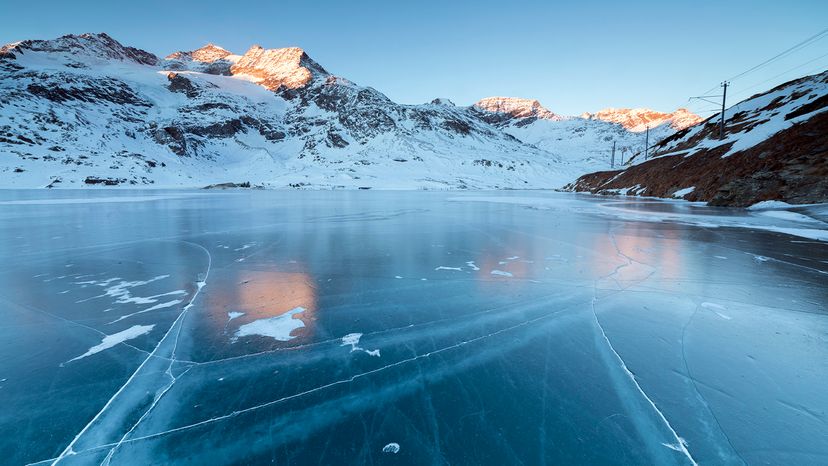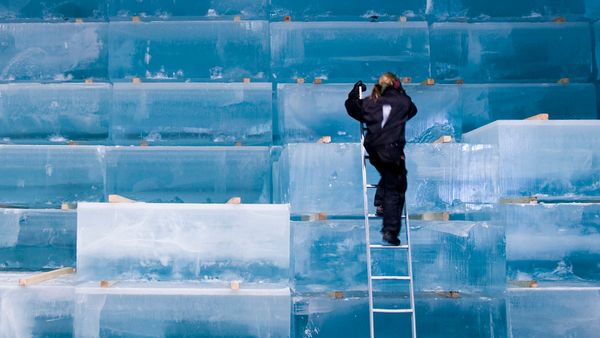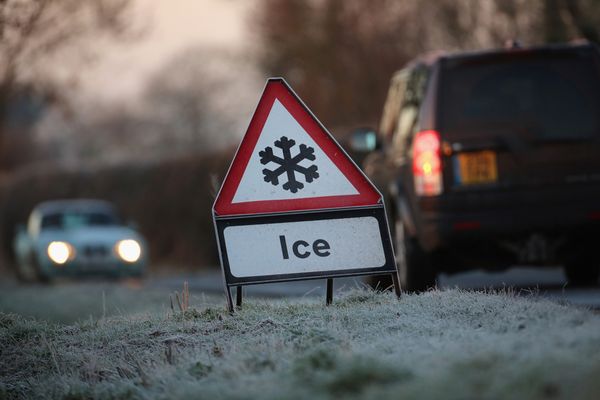
Key Takeaways
- Skipping stones on ice can produce sci-fi-like sounds.
- The noises may sound eery, but they can be explained by simple physics.
- This highlights how seemingly mundane activities can reveal fascinating scientific principles.
Ice is kind of weird. For one thing, despite being solid, it's less dense than liquid water. And for another, it's been known to make some rather jarring noises. Skip a stone across a frozen lake and you might hear a high-pitched sound that's both familiar and otherworldly. It's like the chirp of an exotic bird. Or a laser blast from a galaxy far, far away.
Lifestyle YouTuber Cory Williams knows all about the aural quirks of frozen water. In 2014, Williams struck internet gold and went viral when he filmed himself tossing rocks onto an ice-covered Alaskan lake. This simple action produced high-pitched, futuristic noises.
Advertisement
Williams' video documents a classic example of acoustic dispersion. Sound waves are made up of multiple frequencies, including high ones and low ones. When a sound travels through air, its component frequencies usually travel together at the same rate, so they all reach the human ear more or less simultaneously.
Advertisement

